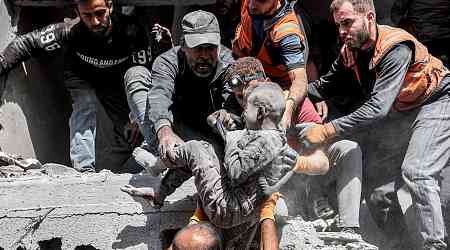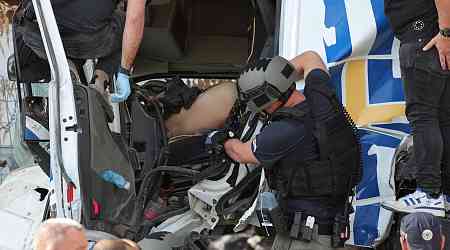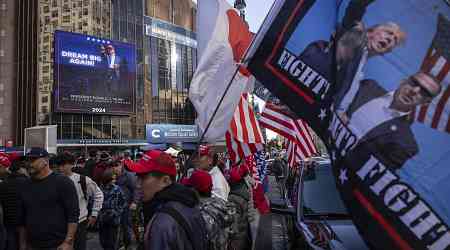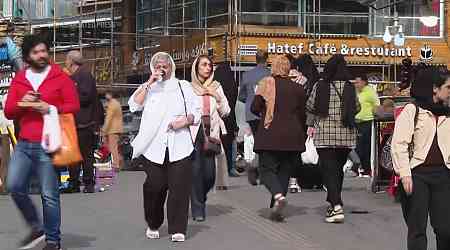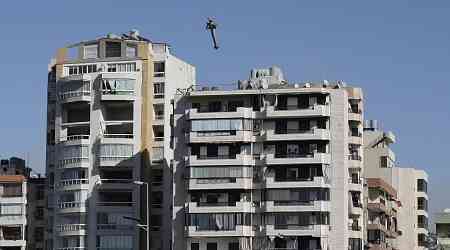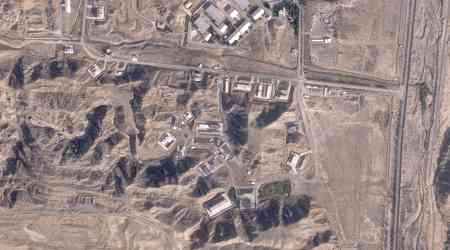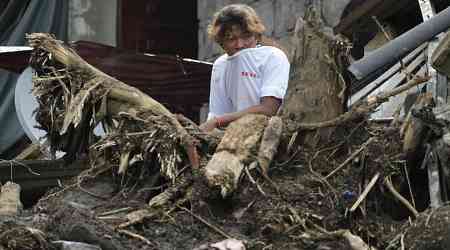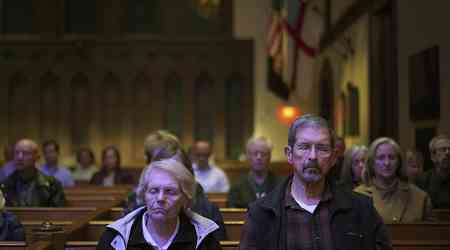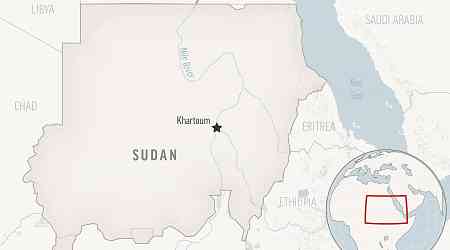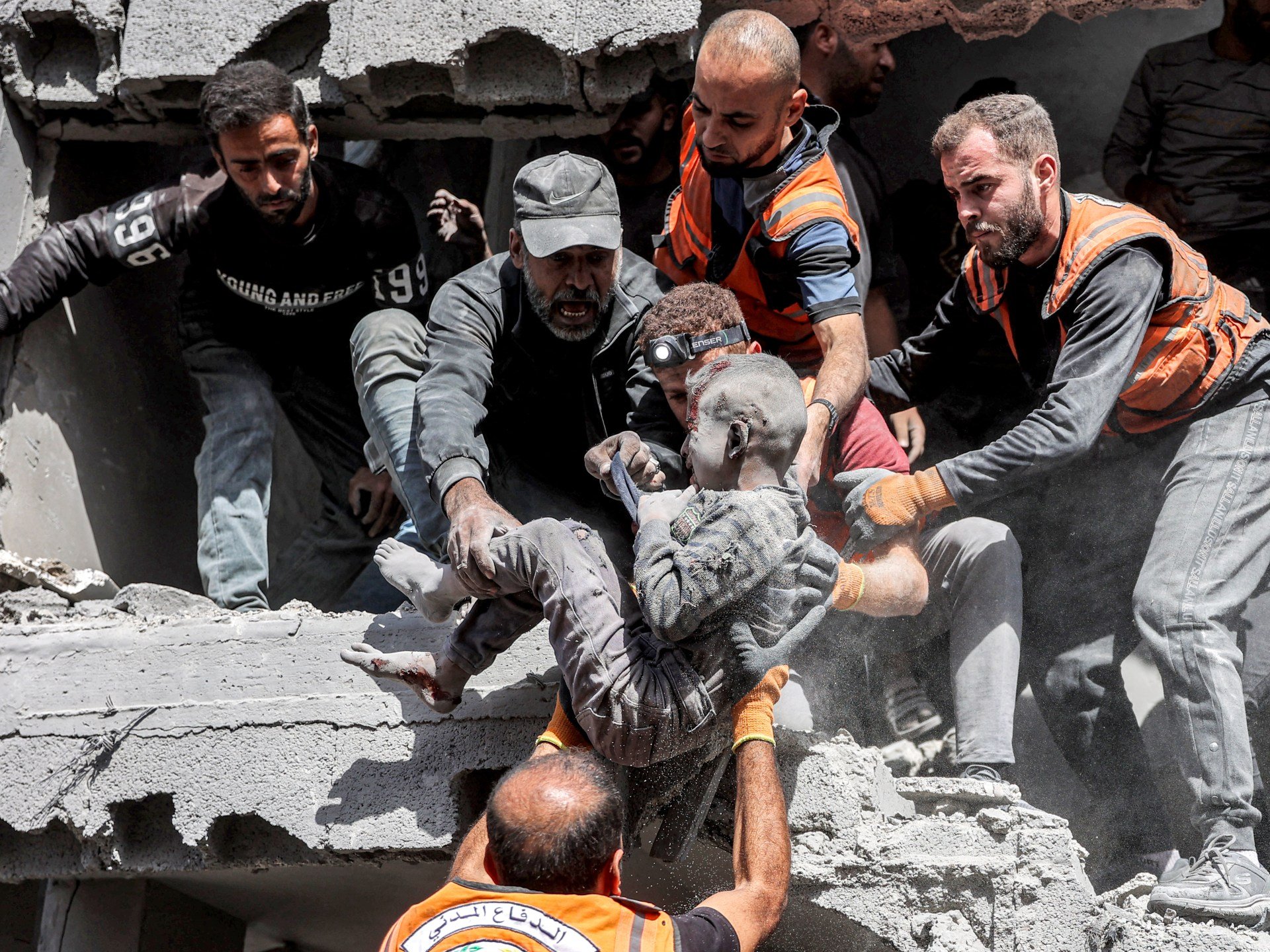
Comedian Tony Hinchcliffe was supposed to be one of over a dozen warm-up acts for Donald Trump’s campaign rally on Sunday in Madison Square Garden. He ended up stealing the show with a raft of racist jokes targeting Latinos, Black Americans, Jews, and Muslims that drew swift condemnation from Democrats and Republicans alike.
[time-brightcove not-tgx=”true”]But the Puerto Rican community may ultimately be the most mobilized by Hinchcliffe’s set, after he made a series of incendiary comments about the U.S. territory. He referred to Puerto Rico as “a floating island of garbage” and suggested that Latinos “love making babies,” which was met with a mix of claps and jeers.
The comments ignited a firestorm of criticism, highlighting the delicate political landscape as Puerto Rican voters play a crucial role in key battleground states like Pennsylvania. Hinchcliffe, known for his podcast “Kill Tony,” addressed the furor on social media on Sunday evening, saying that his critics “have no sense of humor” and that he “made fun of everyone.”
On Monday, the Trump campaign tried to distance itself from Hinchcliffe’s set. “The joke does not reflect the views of President Trump or the campaign,” senior advisor Danielle Alvarez said in a statement to TIME. Asked for clarity about which joke they were referring to, the campaign’s national press secretary Karoline Leavitt replied in an email, “You do know he’s a COMEDIAN, and these are JOKES, right????” The campaign later followed up with a new statement attributable to Alvarez: “These jokes do not reflect the views of President Trump or the campaign.”
Prominent Trump allies condemned Hinchcliffe’s remarks following the rally. David Urban, a campaign strategist, labeled them “unfunny” and offensive to Puerto Rican communities. Florida Sen. Rick Scott, who relies heavily on support from Puerto Rican voters in his home state, wrote that, “It’s not funny and it’s not true. Puerto Ricans are amazing people and amazing Americans!” Florida Rep. Carlos Gimenez, a close ally of Trump, characterized the joke as “classless” and not representative of Republican values.
While Hinchcliffe and the Trump campaign have insisted that the remarks were meant as humor, some in the community feel differently. “This was not considered a joke,” says Frankie Miranda, the president and CEO of the Hispanic Federation, a Latino non-profit membership organization. “We were not in a space for jokes. This was a space to set the agenda for the future by a presidential candidate, and this is extremely damaging. We can no longer continue to stay silent when this is the tone that is set at a campaign rally a week before a presidential election.”
The timing of Hinchcliffe’s comments could not have been more poignant. Vice President Kamala Harris was in Philadelphia that same day, delivering a speech at a Puerto Rican restaurant where she outlined her plans to support the island and enhance its electrical infrastructure. Her campaign continued to seize on the comments from Trump’s rally about Puerto Rico, quickly clipping the video and posting it on social media.
Some have likened this moment to an “October surprise,” a term used to describe unexpected events that can significantly impact the election landscape just before voting begins. “Memory is hard to fade within just days of an election,” says Fernando Tormos-Aponte, a sociology professor at the University of Pittsburgh who specializes in Puerto Rican political mobilization. “With how viral this went, and the sort of WhatsApp networks and other means whereby people find out about this, folks are likely to remember this on Election Day.”
Puerto Rican superstar Bad Bunny, who recently enjoyed unprecedented success with his album “Un Verano Sin Ti,” posted a video of Harris outlining her support for Puerto Rico shortly after Hinchcliffe’s set. Although there’s no evidence linking his endorsement to the controversy, the move underscores the potential repercussions for the Trump campaign among a demographic already feeling marginalized, Miranda says.
“This reinforces what we already knew—that Puerto Rico is not a priority for Trump,” he says, noting that as President he withheld about $20 billion in hurricane relief for Puerto Rico following the devastating aftermath of Hurricane Maria in 2017. “This sets the tone, and this is definitely going to have an impact on many Puerto Ricans and other Latinos across the United States when casting their votes.”
The battle for Puerto Rican voters has been particularly pronounced in Pennsylvania, a critical battleground state that is home to the third-largest population of Puerto Ricans outside the island—around 472,213, according to 2021 census data. At least 100,000 Puerto Ricans live in the swing states of Georgia and North Carolina, and around 60,000 in Arizona and Wisconsin. Historically, Puerto Rican voters have leaned Democratic, but Trump has been making efforts to woo them, despite previous tensions.
Last month, Trump invited reggaeton star Nicky Jam to endorse him at a rally in Las Vegas where Trump mistakenly misgendered him. “Do you know Nicky?” Trump asked the crowd. “She’s hot!” (Nicky Jam initially downplayed the misstep, but later removed an Instagram post supporting Trump amid backlash from fans). Earlier, Trump touted endorsements from Puerto Rican reggaeton stars Anuel AA and Justin Quiles during a rally in Pennsylvania. “Do you know who the hell they are? Come up here, just fast, fast, fellas,” he said. “Come on ’cause I don’t know if these people know who the hell you are.”
Despite his targeted outreach efforts, many within the community remain skeptical of his intentions, largely due to his Administration’s previous actions and rhetoric surrounding Puerto Rico. The recent controversial comments at his rally could deepen this skepticism. “If my family in Puerto Rico is still suffering from blackouts today, still suffering from the delay in the recovery of Puerto Rico, it is because of the response of the Trump Administration,” Miranda says. “This is very emotional for me.”
With the Nov. 5 election in just over a week, many within the Puerto Rican community are not just processing their anger but are mobilizing in response to what they perceive as a lack of respect and acknowledgment from the Trump campaign. Sunny Hostin, host of ‘The View,’ began her popular daytime show with a message directly at Trump: “Puerto Rico is trash? We are Americans, Donald Trump,” she said. “My fellow Puerto Ricans, trash collection day is November 5, 2024. Don’t forget it.”
While that sentiment may resonate strongly within the community, it could also resonate with other racial and ethnic groups, says Tormos-Aponte. “An event like this can trigger a number of folks who also see themselves as vulnerable minorities who are starting to see a pretty distinct pattern,” he says. “First it was Haitians in Springfield, Ohio, now it’s Puerto Ricans and undocumented immigrants. I think that it could trigger a lot of mobilization on election day and some solidarity across racial and ethnic minority groups.”
With reporting by Brian Bennett / New York



















